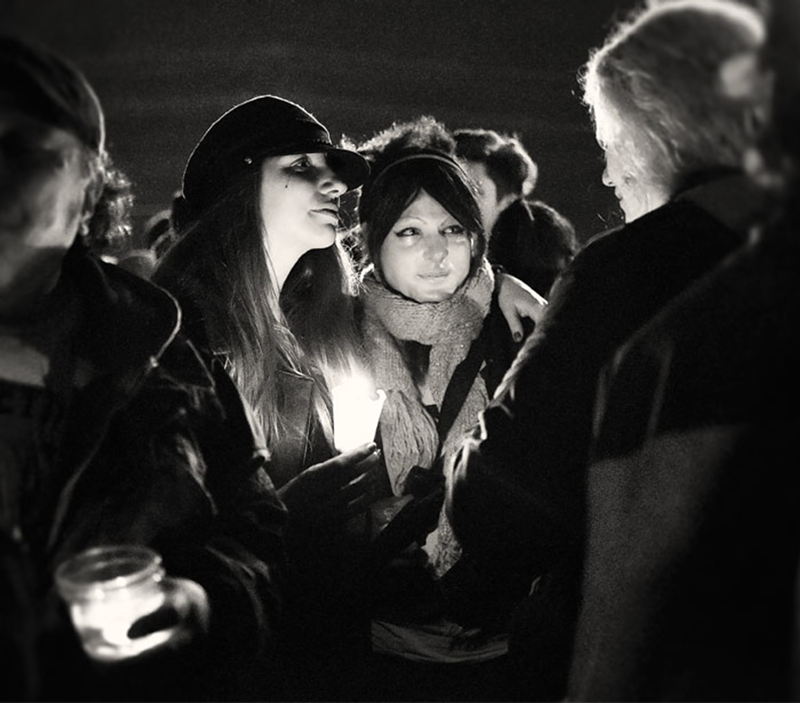It has been almost six months since the tragic death of Leelah Alcorn, the transgender 17-year-old who attained international attention for her death and accompanying suicide note on her Tumblr page — which has sincebeen deleted upon her parents’ request. Reading it, the note was also a plea that yearned for a national conversation about discrimination, the lack of support for trans people and the societal standards that affect trans individuals, as evidenced through her personal experience.
The post cited loneliness and alienation as her reason for walking in front of oncoming traffic near her hometown of Kings Mills. She specifically attributed those feelings to her parents removing her from school, making her attend Christian conversion therapy and restricting her computer access after she came out to them as transgender, which she said was difficult because she found community and support online when she couldn’t find it anywhere else.
After her death, the online community was there for Leelah once again. Her picture appeared all over Instagram and Tumblr feeds alongside a drawing of adults cutting off a child’s rainbow wings that read, “Refuse to be Your Child’s First Bully.” People voiced their sadness and frustration through hashtags like #LeelahAlcorn, #RestInPower and #ProtectTransKids. Petitions were started on change.org and whitehouse.gov to ban conversion therapy — an initiative dubbed “Leelah’s Law” — gaining thousands of signatures. The conversation about Leelah and, as a result, the trans community at large grew as the public learned more about her from friends who spoke out, and especially after her mother spoke to CNN. Even after her child’s suicide, Leelah’s mother and countless media outlets continued to misgender her using the pronouns “he,” “him” and “his,” and referring to her by her assigned birth name. Her mother’s interview sparked uproar from the queer community and allies — even after Leelah’s death, her own mother still would not recognize or honor that she identified as a young woman.
Leelah’s experience reveals a lot about the younger generation’s relationship with social media, exemplifying its importance to kids searching for support and community they cannot find within the confines of their homes or cities. But Leelah’s impact went further than a digital movement.
Thousands of people around the world organized and gathered candlelight vigils for Leelah and other trans individuals who died in relation to their identities. In their acceptance speech at the Golden Globes, Transparent creator Jill Soloway and actor Jeffrey Tambor dedicated their awards to Leelah Alcorn, the trans community and trans people who die too young. The Happy Hippie Foundation, Miley Cyrus’ charity organization that offers support and shelter to homeless youth, was partly inspired by Leelah.
The most important societal impact Leelah made, with the help of her supporters, might have been bringing the conversation about LGBTQ+ conversion therapies to the forefront.
After international attention and several petitions, President Obama became the first president to publically use the word “transgender” during his State of the Union address this year, and called for an end to LGBTQ+ conversion therapy. “Fix society. Please,” Leelah simply stated in her note. It is a long road when it comes to legalities and controversy, but Obama propelled the journey with his public support.
There are other elements in Leelah’s plea that might never be answered publicly. No parent should have to go through losing a child. Leelah’s appeal to the public and the discussion of personal experience introduced an important lesson in a new age of increasing parental support for queer youth compared to previous generations: balancing your views, vision and expectations of your child with their developing individuality.
Through what we know of Leelah’s family dynamic, we can reflect on our roles as parents, siblings and friends. An individual needs unconditional love, support and acceptance as they face the harsh realities of life and come into their own.
As this Pride season comes and goes, let us continue to reflect on our roles in each others’ lives and act on the needs of the individual, not what we need from them. ©


